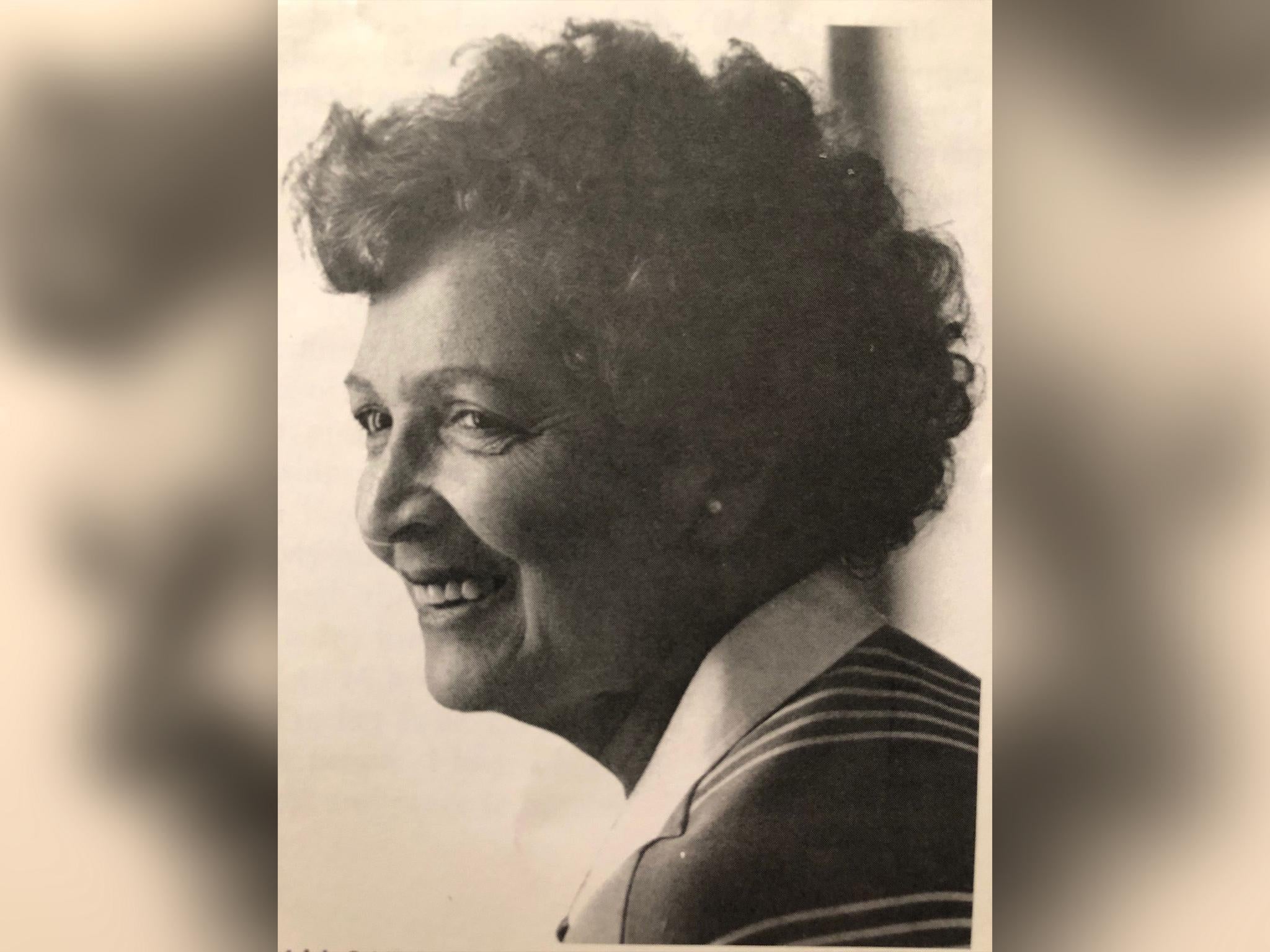Patricia Schiller: American pioneer of sex education
Seeing how teenage girls in 1960s America were forced to leave school if they became pregnant, Patricia Schiller, who has died aged 104, set about changing attitudes in society

Your support helps us to tell the story
From reproductive rights to climate change to Big Tech, The Independent is on the ground when the story is developing. Whether it's investigating the financials of Elon Musk's pro-Trump PAC or producing our latest documentary, 'The A Word', which shines a light on the American women fighting for reproductive rights, we know how important it is to parse out the facts from the messaging.
At such a critical moment in US history, we need reporters on the ground. Your donation allows us to keep sending journalists to speak to both sides of the story.
The Independent is trusted by Americans across the entire political spectrum. And unlike many other quality news outlets, we choose not to lock Americans out of our reporting and analysis with paywalls. We believe quality journalism should be available to everyone, paid for by those who can afford it.
Your support makes all the difference.“By learning how men and women and boys and girls relate to one another, we can learn to understand both ourselves and others,” wrote the sex education pioneer Patricia Schiller, who has died aged 104.
Schiller did not set out to become a sex educator. She was working as a lawyer, helping her clients navigate the legal quagmire of divorce, when she realised that what they really needed was help in navigating relationships. She told her daughter Louise: “They really didn’t know what a marriage was.” This revelation sent Schiller back to university to study for the masters in Clinical Psychology that would be the foundation for her ground-breaking second career.
She was born Pearl Silverman in Brooklyn, New York (her son said he didn’t know when “Pearl” became “Patricia”) to Russian Jewish immigrants, pharmacist Louis and homemaker Gussie Silverman. She was one of four children. The Silvermans were socialists whose politics moulded their daughter’s strong social conscience.
Schiller studied law at Brooklyn College, graduating in 1934. She met her husband Irving Schiller, an Army lieutenant, at a lawyers’ lunch. They married in 1943 and settled in Washington DC, where Schiller worked for the National Labor Relations Board and then as a volunteer for The Legal Aid Society. It was while at The Legal Aid Society that Schiller began to wonder if she could offer her clients more than legal advice and made the decision to study psychology at the American University.
Upon graduating with her master’s degree in 1960, Schiller set to work applying her new knowledge to the problems she’d seen in her legal practice and also to the issues facing pregnant teens. To help support her family while she studied, Schiller had taught English at a local junior high school. There she had noticed that teenage girls who were forced to leave school as soon as they became pregnant became trapped in a cycle of poverty – a consequence of having to abandon their education.
In 1963, Schiller joined the inaugural team of The Webster School for Pregnant Girls, where pregnant teens could continue their education and also learn parenting skills. Schiller was adamant that the girls’ partners should also be involved. Her work with the school was recognised when Schiller received the Advanced Pacesetter Award from the President’s National Advisory Board in 1970.
The 1960s were a time of great progress in sex education and therapy but Schiller was concerned that the burgeoning field invited the possibility that quacks and charlatans would take advantage of vulnerable clients. To that end, she set about creating a regulatory body to oversee the discipline. In 1967, with a thousand dollars of her own money and a gift of $500 dollars from philanthropist Phillip Stern, Schiller set up the American Association of Sex Educators, Counsellors and Therapists. She established guidelines for the profession with celebrated sex researchers Masters and Johnson.
At the same time, Schiller worked to raise the standard of sex education in America’s schools and colleges. In particular, she was keen to improve the training of medical students in understanding sexual dysfunction and how to talk about it. In 1973, Schiller published Creative Approach to Sex Education and Counselling. Eight years later, in 1981, she authored another book: The Sex Profession: What Sex Therapy Can Do.
She continued to give courses and take part in conferences well into her seventies. She was 96 years old when she published her final book: Sex Questions Kids Ask – and How to Answer. Schiller was adamant that proper sex education in schools made a vital contribution to happy adulthood.
In 1978, Schiller said: “I think of sex as the most creative, pleasurable, wonderful thing between two people who care about each other. But you know, it doesn’t have to be a gourmet dinner every time. It can also be just, well, it can be a sandwich and a Coke.’
Schiller is survived by a son and a daughter, five grandsons and four great-grandchildren
Patricia Schiller, American sex therapist, born 27 October 1913, died 29 June 2018
Join our commenting forum
Join thought-provoking conversations, follow other Independent readers and see their replies
Comments